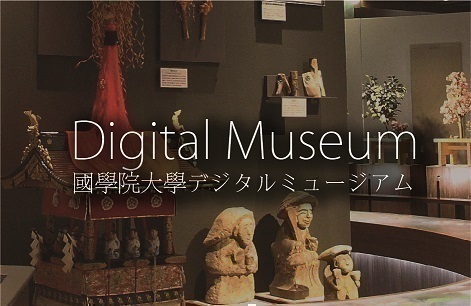- トップ
- Encyclopedia of Shinto
- Ban Nobutomo
Encyclopedia of Shinto
| Main Menu: | |
| Links: |
詳細表示 (Complete Article)
| カテゴリー1: | 8. Schools, Groups, and Personalities |
|---|---|
| カテゴリー2: | Personalities |
| Title | Ban Nobutomo |
| Text | (1773-1846) Scholar of National Learning (kokugaku) and samurai retainer of Obama Domain in Wakasa Province. His first name was Korenori, and he had the epistolary name Kotoi (written with two different sets of Sino-Chinese characters). Born in 1773 in Onyū District, Wakasa Province (present-day Obama City, Fukui Prefecture) as the fourth son of Obama retainer Yamagishi Koretomo, his mother Sayo was second daughter of Kataoka Yoshio, also a retainer of the same domain. In 1786 he was adopted by Ban Nobumasa, an Obama samurai residing in Edo, and moved to the capital the following year. He married Nobumasa's daughter Mio in 1794, and around this time encountered the writings of Kamo no Mabuchi and Motoori Norinaga for the first time. In 1801, through an introduction from Murata Harukado, Nobutomo's name was presented for registration as a disciple of Motoori. Just as he was preparing his credentials, however, Norinaga passed away. Ban thus dedicated his entry documents to Norinaga's spirit and became his posthumous disciple. Thereafter he received instruction from Motoori Ōhira, Norinaga's adopted son and heir, and also became close to the top disciples of Suzunoya, the Motoori house academy. In 1829 he was appointed editor of Motoori's biography Suzunoya-ō ryaku nenpu, a sign of the trust bestowed upon him by members of his school. He was also prominent in his role as domainal retainer; in 1806 he inherited a family estate of approximately 100 koku, and was otherwise prevailed upon extensively by the domainal lord. He also served the leader of the Sakai house, a hereditary Tokugawa vassal (fudai daimyō) and influential domainal lord who held positions as Kyoto Inspector (shoshidai), Magistrate of Temples and Shrines (jisha bugyō), and member of the Council of Elders (rōjū). In response to orders from Sakai, Ban moved between Edo, Obama, and Kyoto, rising to the ranks of Aide to the Domainal Lord (kinjū) and Domainal Offical (monogashira) to the Master of Archives (gobunkoazukari), from which he received a 150-koku stipend. Ban inherited his family estate in 1816 and retired from service, dedicating himself to study. Though he published little during his lifetime, his superb historical scholarship and intellectual rigor were renowned. He is often listed with Hirata Atsutane as one of the great post-Norinaga kokugaku scholars, though he and Atsutane stood in opposition both in terms of scholarship and disposition. Following the order of the daimyō who succeeded to the post of Kyōto Inspector, Nobutomo returned to Kyoto in 1844, and died in the tenth month of 1846 at the age of seventy-four while residing at the Inspector's residence. He was given the posthumous Buddhist name Zentake'in Dōrin Shin'yū Koji. Ban's writings include Semi no ogawa, Nakatomi no haraekotoba yōkai (Important Aspects of the Nakatomi Purification Ritual), Yamatohime no mikoto seikikō (Lecture on the Yamatohime no mikoto seiki), Shirushi no sugi (The Signpost Cedar), Banshinkō (Lecture on Foreign Divinities), Nagara no yamakaze (The Mountain Wind of Nagara), Chinkonden (Transmitted Spirit Teachings), Shinji sanben (The Three Imperial Regalia), Wakasa kyūjikō (Lecture on the History of Wakasa Province), Kōzuke sanpikō (Lecture on Three Monuments of Kōzuke), Chūgai keiiden (Teachings on Internal and External Relations), Shiseki nenpyō (Annual Report of Historical Scholarship), Hikobae, zan'ōki (Record of Cherry Blossoms Blooming after Spring), and Seibokukō (Lecture on Divination), among other works. - Mori Mizue |




